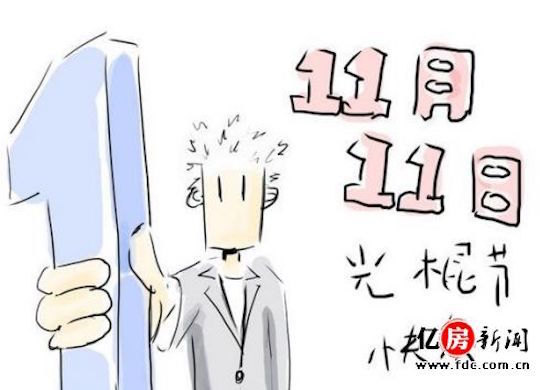By Alec Ash
Every November 11th, while Brits wear poppies to remember the dead of WWI, the China news cycle rotates back around to Singles Day or “Double Eleven” — the online shopping bonanza, Black Friday on acid, pioneered by e-commerce company Alibaba. This year, observers were especially wide-eyed as Alibaba reported sales of 121 billion yuan ($18 billion), a 32% increase on the year before. But Singles Day hasn’t always been about sales, and the only figure worth crunching when it started was the loneliest number, the number one.
In my book Wish Lanterns, out in the UK and released in the US in March, I tell the origin story of the festival, looking back to when it was a celebration of singlehood – and then describe how it came to be dominated by e-retail. Here is that excerpt for readers of the China Blog.
In 1993, the story goes, four Nanjing University students were slouching on their dorm bunk beds, slurping instant noodles, drinking beer, chain-smoking and complaining that the ladies weren’t falling over each other to get at them. They were “bare branches,” they grumbled, using a word for single men, guanggun, that still carried stigma. “From today,” one of them said, pleased by the recurring bare branch of the number one in that day’s date, “November 11th will be called Singles Day.”
Whether there’s any truth to this origin myth or not, the idea stuck. What started as an in-joke became a self-mocking campus tradition, embraced by girlfriendless students who were fed up with sleeping alone while couples had not one but two Valentine’s days — a traditional Chinese day for lovers in the summer as well as the newly popular Western import. When those students graduated and found work, Singles Day spread. Soon it became an excuse for old friends to get together once a year to talk about jobs, property prices and why the women still weren’t biting.
Little by little, people came to see the mock-festival as an opportunity to either celebrate or shed their single status. Speed-dating events sprouted in cities. Bars and clubs advertised special deals for the night. Singles Day became the chance to tell a girl you had a crush on that you liked her, or to propose to your partner. The number of couples registering to be married leapt every 11 November. It was called tuoguang, “shedding your bare branchness,” but the phrase had a double entendre of “strip naked” – which only partially explains why some singles marked the day with the more eccentric tradition of going for a group run, bark naked.
One year flash mobs emerged on a Beijing city bus route marked number 11, organized on bulletin boards online. Participants were instructed to wear a turban and carry a stick, say, “The weather is really nice,” to anyone else in a turban and stay on until the end of the line, to the bewilderment of regular passengers. Fans of Japanese manga, adopting a more sinister joke from a comic book, called it “barbecue day” and suggested that all couples should be burnt. Singles Day even had its own special food: four deep-fried crullers, a breakfast snack, to represent the four number ones in the date, with a single dumpling in the middle for the dot.
The celebration of singlehood struck a chord with young Chinese, both men and women, who resented the pressure to find a partner. It was their festival — invented by the young and for the young, not a traditional Chinese holiday or a Western import. But in the late 2000s Internet retail companies started to take an interest in Singles Day. November was a seasonal slump in sales between mid-autumn festival and Chinese New Year, and offline business had proved that the day was a useful sales gimmick. In 2009 Taobao, the eBay-like online store comprised of individual sellers, trialled a mass discount with participating retailers. The next year they marketed it hard, selling almost a billion yuan’s worth of goods in twenty-four hours.
In 2011 the festival fell on a triple eleven — 11/11/11 — and was promoted by Taobao as “Super Singles Day.: Tens of millions of shoppers, single or not, waited for the stroke of midnight when sales began to snap up the best deals. There were teddy bears, sexy underwear, wedding gowns, “bare branch” IDs mocked up to look like marriage documents. But there were also discounts on everything else that had nothing to do with dating: mobile phone cases, winter thermals, rice cookers, gloves and scarves. Every time “double eleven” day came around, Taobao shifted more total value: three billion yuan, nine billion, fifty billion, ninety billion. Soon the origins of the day were completely lost in the shopping frenzy. November 11th was associated only with online sales.
Also read Alec Ash’s dispatch for the China Blog from Singles Day two years ago, at a speed dating event in Beijing where lonely Chinese looked to shed their single stigma.


